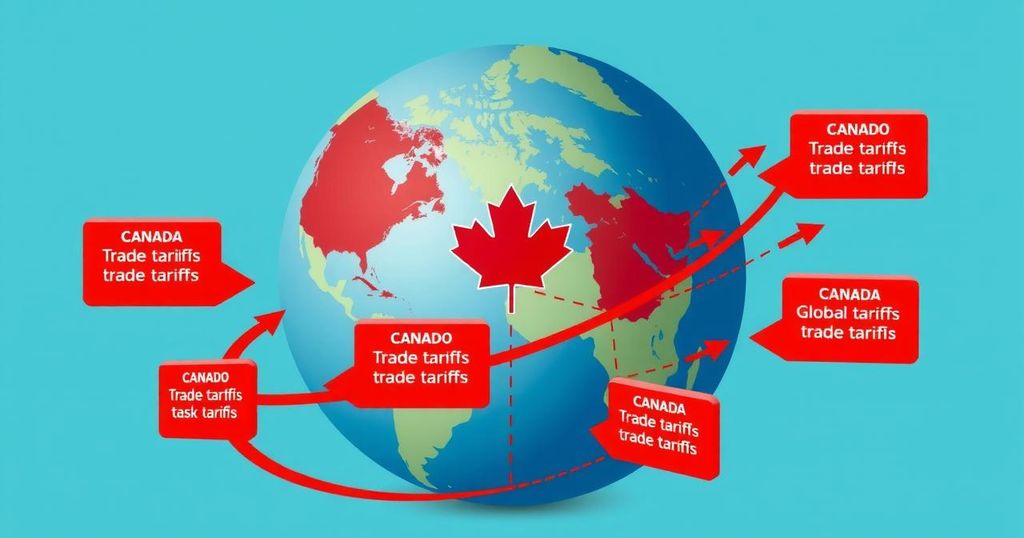President Trump’s tariff threats against Canada have elicited retaliatory responses leading to heightened tensions. Canada imposed counter-tariffs, while diplomatic efforts largely failed. Public sentiment shifted in Canada, demanding stronger responses. Other countries, like Mexico, maintained a more restrained approach. Experts debate the efficacy of Canada’s strategy moving forward, emphasizing the need for swift negotiation of trade agreements.
Recent events surrounding tariffs imposed by the Trump administration have drawn significant attention from global leaders, including those from India. Following President Trump’s threats to escalate tariffs on Canadian steel and aluminum to 50%, a temporary détente was reached after Canadian officials took measures to suspend additional taxes. This led to a reduction of tariffs back to 25%, illustrating the complex negotiations at play.
Canada responded promptly to U.S. tariffs by instituting counter-tariffs on approximately C$30 billion worth of American goods, while the European Union announced similar countermeasures targeting U.S. imports valued at up to €26 billion. Meanwhile, countries such as Japan and South Korea chose not to retaliate immediately, reflecting a different approach to the burgeoning trade conflict.
Mélanie Joly, Canada’s Minister of Foreign Affairs, warned other nations to observe the situation, suggesting, “You’re next,” indicating a possible ripple effect of U.S. tariff policies. Despite significant diplomatic efforts by Canadian officials to ease tensions, Trump’s tariffs on various goods, including those based on border security concerns, were enacted, creating a notable shift in public sentiment in Canada.
The political landscape in Canada has changed, with a call for stronger stances against U.S. actions. Premier Wab Kinew of Manitoba, who once sought amicable relations, has now taken steps to counter U.S. influence, including symbolic acts of defiance. British Columbia’s Premier David Eby echoed these sentiments, expressing frustration and a resolute intention to communicate Canada’s displeasure effectively.
Unlike Canada, other countries, including Mexico, have reacted with more restraint amidst similar tariff threats. Trump’s exemption of Mexican goods from certain tariffs has fostered a perception of better treatment compared to Canada, raising questions on strategic responses from different nations. Experts debate whether Canada’s aggressive approach is beneficial or whether a more diplomatic stance might yield better long-term results.
For Canada, renegotiating the USMCA trade agreement remains a vital objective. Analysts believe that upcoming Canadian political transitions could impact the urgency and strategy utilized in navigating these complex trade relationships. Some experts argue that understanding Trump’s weaknesses, particularly regarding specific issues like electricity tariffs, is crucial in formulating effective counter-strategies moving forward.
In summary, Canada’s response to U.S. tariffs has sparked significant diplomatic tensions, resulting in retaliatory measures and a notable shift in public opinion. The varying responses from other nations illustrate the complexity of international trade negotiations with the Trump administration. With calls for renegotiation of trade agreements and strategies that may involve showing strength, Canada’s future dealings with the U.S. will be influenced by both domestic and international factors.
Original Source: m.economictimes.com




